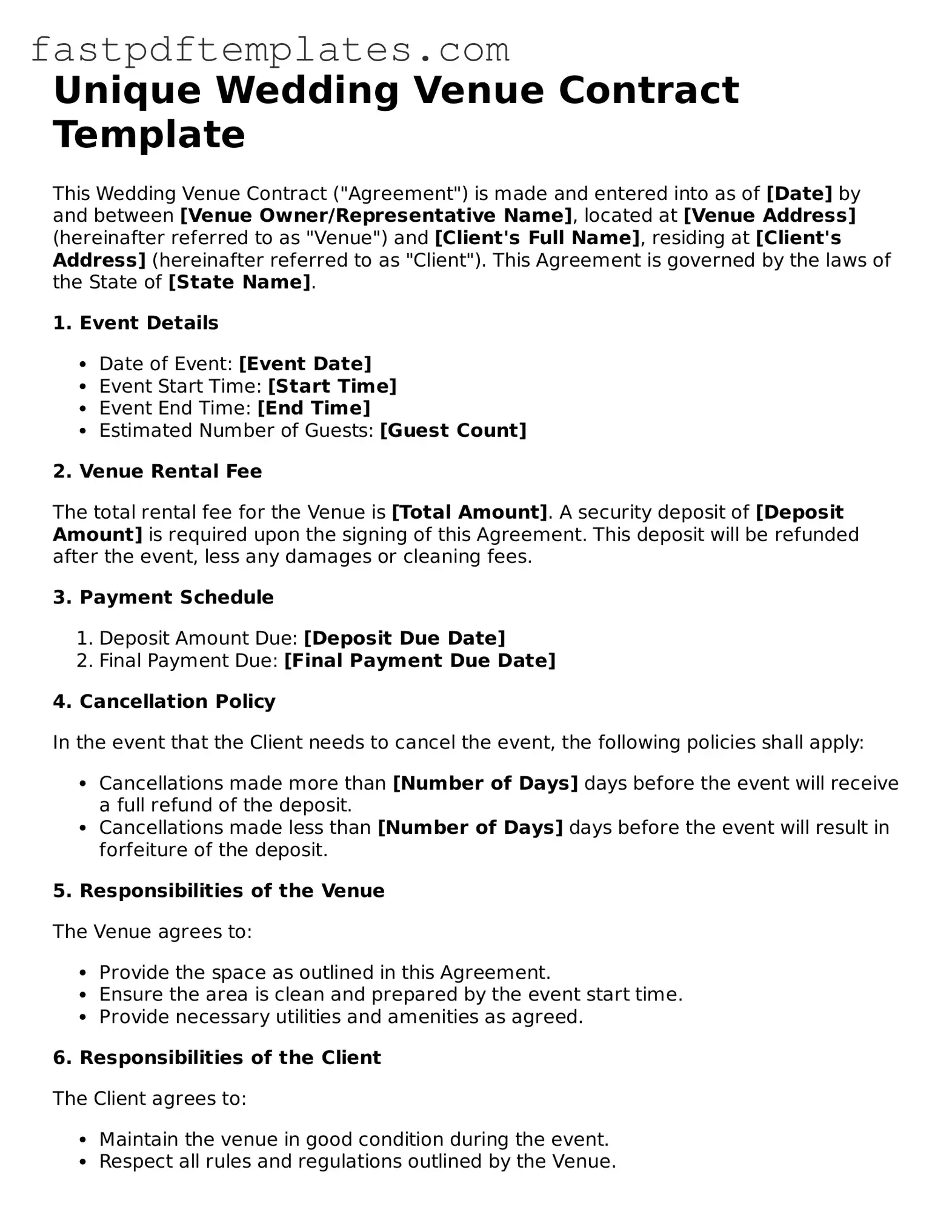The Event Space Rental Agreement serves a similar purpose to the Wedding Venue Contract. Both documents outline the terms and conditions for using a specific space for an event. They detail the rental period, payment terms, and any restrictions on the use of the venue. Just like a wedding venue contract, this agreement ensures that both parties are clear on their responsibilities and expectations.
The Catering Agreement is another document that closely resembles the Wedding Venue Contract. It specifies the terms under which food and beverage services will be provided for an event. This agreement includes details about menu selections, service times, and payment arrangements. Both contracts are essential in ensuring that the event runs smoothly and meets the client’s expectations.
A Photography Agreement is also similar in structure to the Wedding Venue Contract. It outlines the terms of service for photography during the event. This document typically includes details about the number of hours the photographer will be present, the types of photos to be taken, and payment terms. Just as with the wedding venue contract, clarity on these terms helps avoid misunderstandings later on.
The Entertainment Contract is another document that shares similarities with the Wedding Venue Contract. This agreement covers the terms for hiring performers, such as musicians or DJs, for the event. It specifies performance times, payment details, and any technical requirements. Both contracts are crucial for ensuring that the entertainment aspect of the event aligns with the overall vision.
The Floral Services Agreement is comparable to the Wedding Venue Contract as well. This document outlines the terms for providing floral arrangements for the event. It includes specifics about the types of flowers, delivery times, and pricing. Both agreements help ensure that the aesthetic elements of the event are in line with the client's desires.
The Wedding Planner Agreement is similar in that it establishes the terms under which a planner will assist in organizing the event. This document details the planner’s responsibilities, timelines, and payment structure. Like the wedding venue contract, it aims to provide clarity and ensure that all parties are on the same page regarding expectations.
The Officiant Agreement is another document that aligns with the Wedding Venue Contract. It outlines the terms for the officiant's services during the ceremony. This includes details about the ceremony structure, fees, and any pre-wedding meetings. Both agreements are important for ensuring that the ceremony proceeds as planned.
The Transportation Agreement also shares similarities with the Wedding Venue Contract. This document specifies the terms for transportation services, such as shuttles or limousines, for the event. It includes details about pick-up and drop-off times, vehicle types, and payment. Both contracts ensure that logistical aspects of the event are well-managed.
Finally, the Rental Equipment Agreement is similar to the Wedding Venue Contract. This document outlines the terms for renting items like chairs, tables, and sound equipment for the event. It details rental periods, costs, and responsibilities for setup and breakdown. Both agreements are essential for ensuring that all necessary equipment is available and in good condition for the event.

